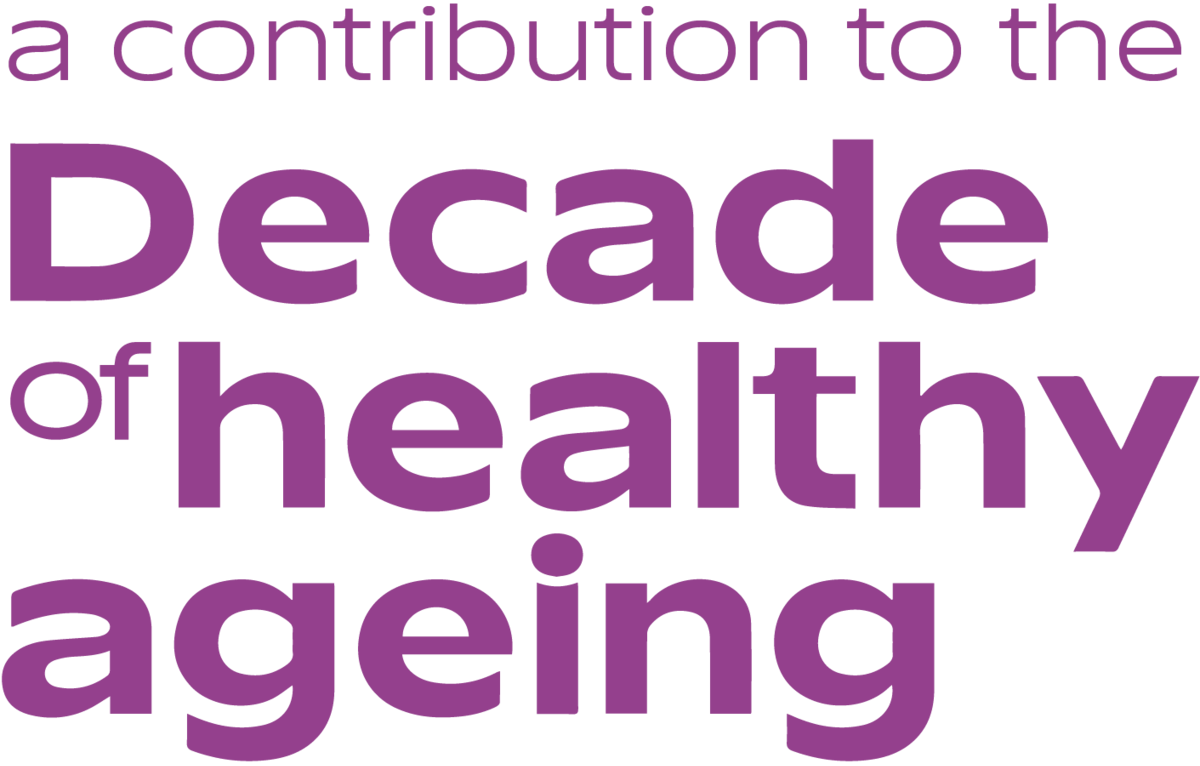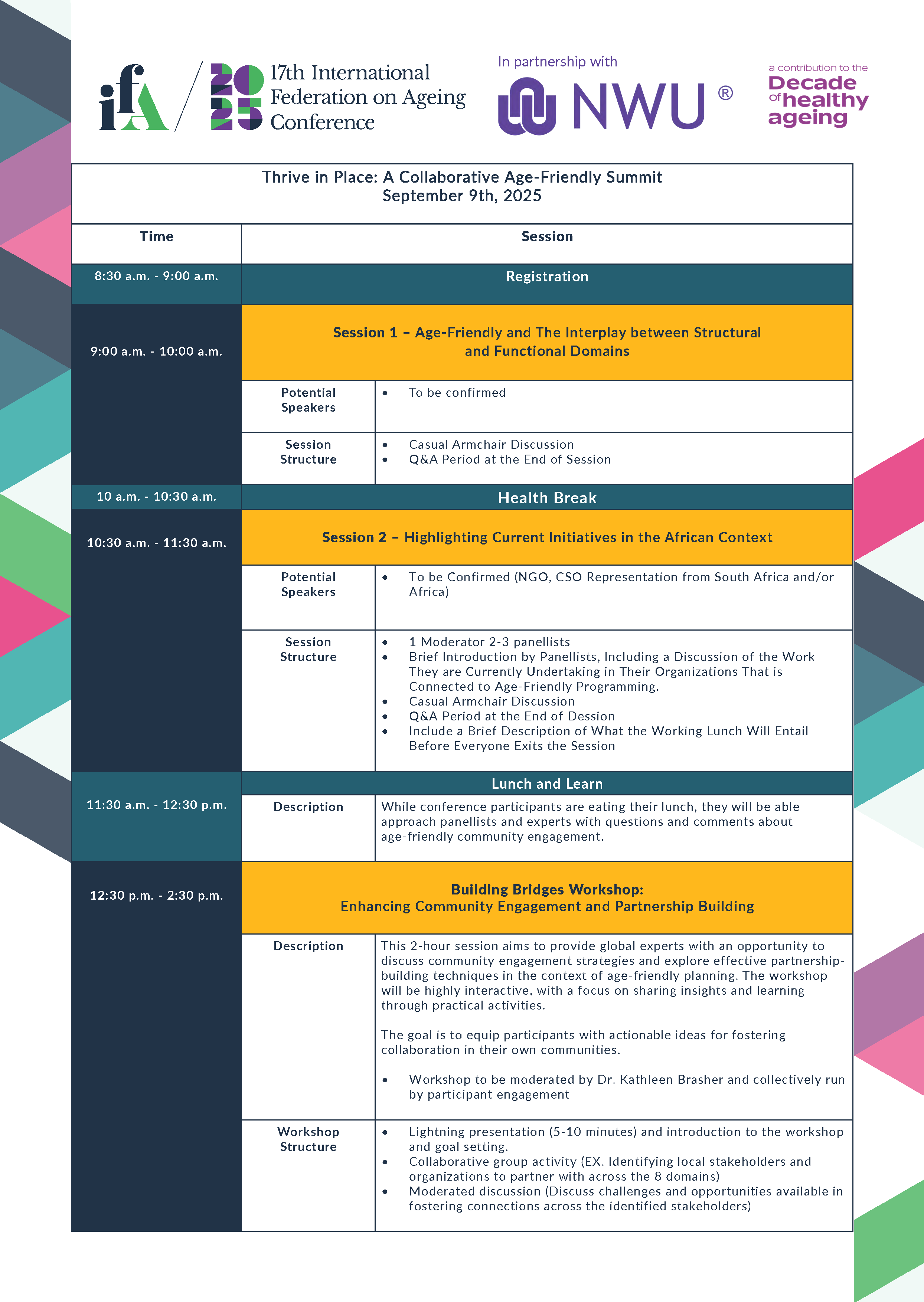Thrive in Place: A Collaborative Age-Friendly Communities Summit
Background on the Age Friendly Framework
By the year 2024 people 65 years and older will represent over a quarter of the global population. This trend in population ageing is inextricably linked with trends towards urbanization, globalization and migration. These trends are profoundly impacting the way individuals irrespective of age will interact with and experience their environments and age healthy.
The IFA with general consultative status with the United Nations and in official relations with the WHO is dedicated to the priorities set forth by these organizations as they relate to healthy ageing, and acting as both the secretariat and as an affiliate for the WHO Global Network of Age Friendly Cities and Communities, is committed to driving the creation of age-friendly environments globally.
Read more World Health Organization’s (WHO) Age-friendly World Age-friendly environments foster healthy and active ageing. They enable older people to: age safely in a place that is right for them; be free from poverty; continue to develop personally; and to contribute to their communities while retaining autonomy, health and dignity. Because older people know best what they need, they are at the centre of any effort to create a more age-friendly world. Cities and communities are increasing where older people are living. The physical and social environments in our cities and communities are powerful influences on the experience of ageing and the opportunities that ageing affords. Cities and communities around the world are already taking steps towards becoming more age-friendly. An age-friendly world is possible and will be built by all of us – community by community, city by city, and region by region. IFA’s 17th Global Conference on Ageing: In alignment with the WHO Age-Friendly Environments program, this conference serves as a rallying point to accelerate the global agenda for creating inclusive communities that support the diverse needs and aspirations of people of all ages. Rooted in the principles of respect, equity, and social inclusion, this theme emphasizes the importance of fostering environments where older adults can age with dignity, independence, and active participation. Implementing the WHO’s Age-Friendly Cities and Communities framework, encompassing the key domains of outdoor spaces and buildings, transportation, housing, social participation, respect and social inclusion, civic participation and employment, communication and information, and community support and health services is a commitment to healthy ageing. Key objectives include: IFA’s Global Conference will address an advance the age-friendly agenda by hosting: a pre-conference Collaborative Summit, highlighting the diversity of age-friendly initiatives in South Africa, and hosting the WHO Global Network for Age-friendly Cities and Communities Affiliates Meeting and showcasing age-friendly advancements throughout concurrent sessions during the conference. By convening stakeholders from diverse sectors and regions, this conference aims to harness collective action towards building inclusive communities where people of all ages can live, work, and thrive. Read less
Interested in attending the AFE Summit?
Check out the agenda below and register today to secure your spot!



